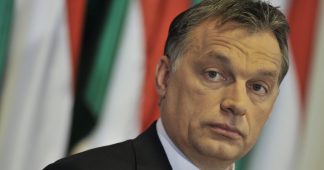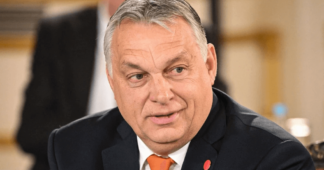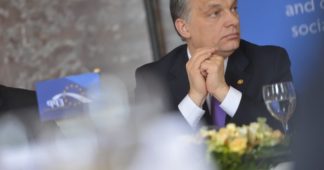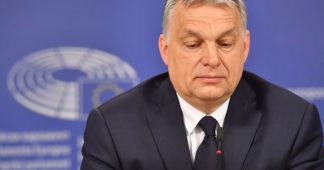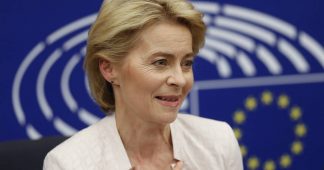The German chancellor has taken credit for a cunning coffee break tactic, which saw the European Union voting to advance accession talks with Ukraine.
Dec 17, 2023
German Chancellor Olaf Scholz admitted to tricking the Hungarian Prime Minister into taking “a break”, in a “pre-agreed” tactic, to ensure a unanimous vote to advance the process of Ukraine’s accession to the European Union.
Scholz made the controversial move during the EU’s meeting in Brussels, where the European bloc’s leaders were voting on a decision to open negotiations with Ukraine about joining the EU. Hungary, under Orban’s leadership, has constituted the main hurdle in the way of Kiev and its backers, taking a staunch position against its accession into the EU.
Orban was expected to veto a decision to proceed with negotiations, however, Scholz delt him a low blow when he suggested the Hungarian Prime Minister “should consider leaving the room briefly,” and “go grab a coffee outside.”
Move was ‘pre-agreed’
Defending his controversial decision, a proud Scholz acknowledged the criticism of his tactics, asserting, “Things cannot be solved every time by leaving the room. This is for exceptional cases, like for example, the decision that we have just made.”
According to Politico‘s inside sources, the decision to get Orban out of the meeting was “pre-agreed” and could be deployed in other situations “constructively”.
As soon as Orban left the meeting, the attending congregation voted in unanimity for the opening of accession talks with Ukraine. European Council President Charles Michel announced the decision to hold talks with Ukraine and Moldova after eight hours of debating, claiming the decision is “a very powerful political message,” conveying confidence in the bloc’s ability to bypass Hungary’s resistance in the future.
On his part, Orban was able to block €50 billion ($54 billion) in long-term financial aid to Ukraine, slamming the decision taken in his absence as “completely senseless, irrational, and incorrect.”
“Hungary does not want to be part of this bad decision!” he wrote on Facebook after EU leaders announced their victory.
The government led by Orban has cautioned that Ukraine’s widespread corruption, heavy reliance on foreign aid, and engagement in an ongoing conflict should render it ineligible for EU membership. Slovakia and Austria have similarly opposed expediting the membership process. Although neither actively opposed Thursday’s vote, Slovak Prime Minister Robert Fico expressed that the country is “absolutely unprepared to open the negotiations” for membership.
Orban refuted allegations that he allowed the EU vote to proceed as a quid pro quo for Brussels releasing €10 billion of the €30 billion in funds that the bloc had frozen last December, citing Budapest’s supposed failure to comply with the EU Charter of Fundamental Rights.
We remind our readers that publication of articles on our site does not mean that we agree with what is written. Our policy is to publish anything which we consider of interest, so as to assist our readers in forming their opinions. Sometimes we even publish articles with which we totally disagree, since we believe it is important for our readers to be informed on as wide a spectrum of views as possible.
